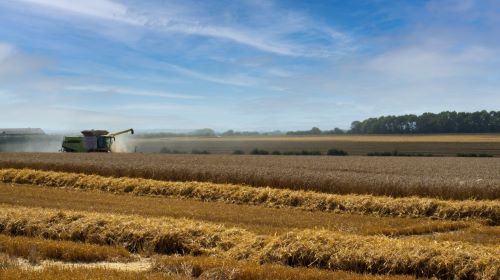
15 July 2022
On Tuesday Sir James Bevan, the CEO of the Environment Agency (EA) gave a speech introducing the publication of the EA’s new report Working with Nature, which raises the need for action for nature, including improved soil management. He spoke to the Green Alliance marking the 60th anniversary of Rachel Carson’s book, ‘Silent Spring’. The report notes the importance of soil, stating that 5 tonnes of organisms can be found in a hectare of healthy soils.
The National Farmers’ Union has published its vision for soil health in a new report published on Thursday. The report argues that in order for agriculture to take action to improve soils, future government policies need to facilitate this through incentives, research, and new environmental markets. The NFU calls for economically viable soil testing, robust data collection, better knowledge exchange and developing a soil carbon marketplace.
The first international soil carbon credits has been issued in the UK. Future Food Solutions, a Yorkshire-based food and agricultural business, have received the carbon credits from a US carbon credit registry, which certifies the business is undertaking soil carbon sequestration through no-tillage barley crops and cover crop rotations.
The author of Rooted, Sarah Langford, has explained in a Wicked Leeks article why she has written the book defending farming. Langford argues that she wanted to show the real problems with big agribusiness and the huge costs they have had through intensive farming on farmers and society. She also notes how natural capital, especially soil carbon, still needs to be measured in a universal way.
In the latest Global Soil Biodiversity Initiative blog, doctoral student Romy Zeiss looked at the challenges and opportunities for policies to protect European soils. Zeiss concludes that eight policy levers are needed to ensure European soils are protected, including consideration for a full ecosystem approach, monitoring threats to soil biodiversity, and a soil indicator system.
Research shows that soil quality is crucial for US crops to weather heat stress. Soils need to be healthy enough, especially for microbes to be present, in order to retain water and allow crops to cope through prolonged periods of heat stress. The research was based on 30 years of data on corn, wheat, soybeans, and cotton crops in the US.
An article in Wicked Leeks examines biodynamic wine production and its focus on soil health. The biodynamic process predates organic farming, and takes into account the whole ecosystem around a vineyard. It sees a link between the cosmos, soil, plants, and people, and through the growing of herbs around vines soils have been brought to life, which in turn brings to life the wines.